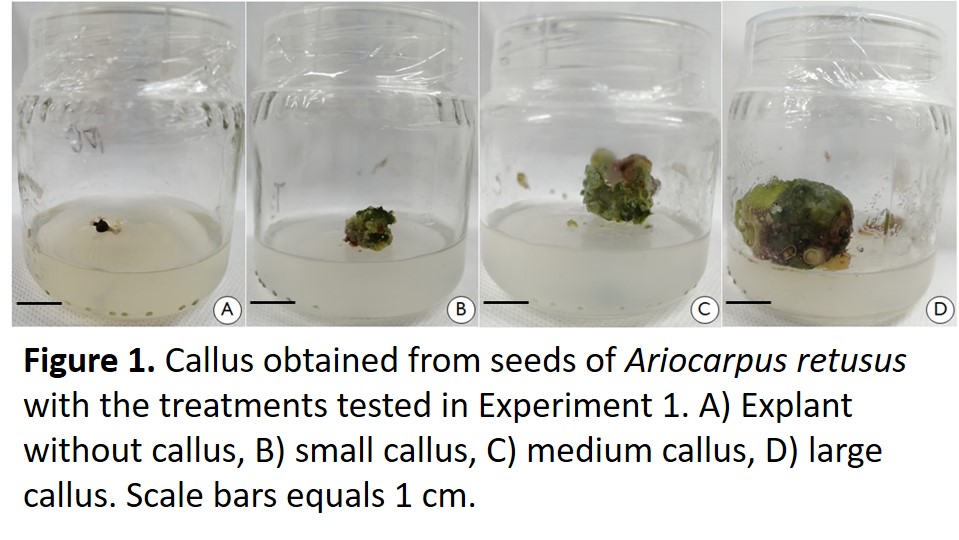Establishment of callus and cell suspension cultures of Ariocarpus retusus (Scheidweiler)
DOI:
https://doi.org/10.56890/jpacd.v24i.454Keywords:
ammonium nitrate, Cactaceae, callogenesis, potassium nitrate, myo-inositolAbstract
Ariocarpus retusus is an endemic species of Mexico subject to special protection by the Mexican government due to its vulnerability to habitat disturbance. Previous studies have reported secondary metabolites in A. retusus with interesting biological activity. However, the use of these secondary metabolites has limitations. The aim of this study was to establish protocols for obtaining friable callus and cell suspension cultures that allow the subsequent development of strategies for obtaining secondary metabolites. Seedlings were obtained from seeds which were exposed to different concentrations of auxins and cytokinins to induce callogenesis. The callus generated was subcultured in Murashige and Skoog (MS) medium with modifications in the content of ammonium nitrate and potassium nitrate, and incubated in different photoperiod conditions (16:8 h light: dark and continuous darkness). Likewise, cell suspensions were established and characterized by friable callus. The MS medium supplemented with 2 mg/L 2,4-D, 2 mg/L BAP, and 3 mg/L KIN allowed the development of vigorous callus. Callus friability was enhanced by decreasing ammonium nitrate (410 mg/L) and increasing potassium nitrate (2850 mg/L). The absence of light during incubation induced friable callus. The addition of myo-inositol (3 mg/L) significantly (p = 0.000) influenced the increase in biomass of cell suspensions.
Publication Facts
Reviewer profiles N/A
Author statements
Indexed in
- Academic society
- Journal of the Professional Association for Cactus Development
- Publisher
- Professional Association for Cactus Development




